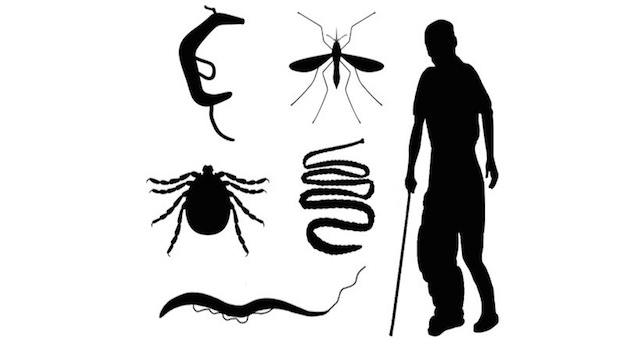Back to Courses









Life Sciences Courses - Page 56
Showing results 551-560 of 644

Assessing and Improving Community Health
This course is intended to serve as an introduction to population health from both the vantage point of both public health and healthcare. We will examine the key components of community health needs assessments, how they are used, and how to compare population health assessments across subpopulations and time. We will also explore the epidemiological sources and criteria by which to select high quality data sources to estimate population health indicators and to select evidence-based interventions to improve population health. Finally, we will design multi sector collaborations that support the phases of population health improvement.
As a survey of the population health, the course provides an overview for students wishing no more than an introduction to the field, as well as good grounding for students who wish to pursue additional coursework in population health.
After taking this course, you will be able to:
- Explain differences between population health assessments for public health and healthcare.
- Outline the key components of community health needs assessments (CHNA).
- Compare how public health and healthcare will use a CHNA to improve population health.
- Identify key population health indicators for social determinants of health.
- Identify key population health indicators for mental health and opioid abuse.
- Categorize data sources by epidemiologic criteria.
- Analyze differences between subpopulations and across time trends.
- Formulate multi sector collaborations that support population health improvement.
- Outline a plan for population health improvement.
- Evaluate evidence-based interventions based on epidemiologic criteria and community suitability.

Tropical Parasitology: Protozoans, Worms, Vectors and Human Diseases
This course provides students an understanding of important human parasitic diseases, including their life cycles, vectors of transmission, distribution and epidemiology, pathophysiology and clinical manifestations, treatment, and prevention and control. Tropical Parasitology is taught by faculty from an area highly impacted by tropical parasites- the Kilimanjaro Christian Medical University College in Moshi, Tanzania. The faculty include Drs. Frank Mosha and Mramba Nyindo (and two lecturers, Drs. Johnson Matowo and Jovin Kitau). Dr. John Bartlett, Professor of Medicine, Global Health and Nursing at Duke University, joins his faculty colleagues in this effort.

Health, Housing, and Educational Services
Course 5 discusses policies in four areas: housing, education, healthcare, and immigration, with an optional fifth module in child protection. This course addresses issues of power, oppression, and white supremacy.
-First we’ll look at housing policy, with its contrasting supports for homeowners and renters.
-Then we’ll interpret the structure that provides education and examine debates about its future.
-The third module will differentiate the issues in the U.S. healthcare system and develop the structure of public healthcare programs.
-Next, the course will lay out immigration policies and weigh the push and pull of the debate about immigration reform.
-The optional fifth module traces the child protection system its beginnings to the present day and appraises the failures and strengths of the system.
The course is part of a sequence in social policy that has an HONORS TRACK. This track will prepare the learner for masters-level work in policy, which involves reading the literature, writing concise summaries and probing critiques. Over the sequence the learner will develop a policy analysis that will create a foundation for professional policy analyst assignments.

Learning Mindsets & Skills
The Learning Mindsets & Skills MOOC is designed to explore underlying concepts behind Learning Mindsets & Skills as well as the the practical applications of those concepts in various educational environments. Course Participants will hypothesize a learning mindset-related change to be implemented within their educational environment, test their theory, and present their findings to a wider audience.

Foundations of Public Health Practice: The Public Health Approach
The Public Health Approach course is the first instalment of the wider Foundations of Public Health Practice specialisation from Imperial College London's Global Master of Public Health (MPH). The scope and content of this course has been developed from the ground up by a combined team of academics and practitioners drawing on decades of real-world public health experience as well as deep academic knowledge. Through short video lectures, practitioner interviews and a wide range of interactive activities, learners will be immersed in the world of public health practice.
Designed for those new to the discipline, over four modules (intended for four weeks of learning), learners will become familiar with the scope, origins, ethics, principles and paradigms of public health practice. But there is also important foundational content for those coming from more experienced practitioner backgrounds. The 'Public Health Approach' is a phrase that is used widely to describe an up-stream, preventive, values-driven and evidence-based approach to improving population health. By the end of this course, learners will be confident with identifying and describing a wide range of public health challenges using the language and reference points of the public health profession.
The subsequent courses require the knowledge from this course, as learners will be introduced to the public health toolkit of health needs assessment and evaluation, before taking deeper dives into behaviour change and health protection.

Data Management for Clinical Research
This course presents critical concepts and practical methods to support planning, collection, storage, and dissemination of data in clinical research.
Understanding and implementing solid data management principles is critical for any scientific domain. Regardless of your current (or anticipated) role in the research enterprise, a strong working knowledge and skill set in data management principles and practice will increase your productivity and improve your science. Our goal is to use these modules to help you learn and practice this skill set.
This course assumes very little current knowledge of technology other than how to operate a web browser. We will focus on practical lessons, short quizzes, and hands-on exercises as we explore together best practices for data management.

Patient Perspectives on Medications: Qualitative Interviews
This course teaches you how to explore the patient perspective on medicines using qualitative interviews. You will learn how to design, conduct and analyse data in a small interview study. The course is related to the course Understanding Patient Perspectives on Medications, but each course can be taken separately.
Please note! In this course you will carry out a small qualitative interview study and to get the most out of this endeavour, we highly recommend that you engage in the discussions: share your thoughts and experiences – and respond to the reflections and questions of your peers.
The course is created by Susanne Kaae, Lourdes Cantarero-Arevalo, Katja Taxis, Anne Gerd Granas, Anna Birna Almarsdóttir, Lotte S. Nørgaard, Sofia K. Sporrong, Johanne M. Hansen, Martin C. Henman, Solveig N. Jacobsen and Ramune Jacobsen.

Health Care Delivery in Healthcare Organizations
Have you ever needed health care and thought that there must be better ways to get or deliver health care? For example, have you found yourself thinking that there should be a way to get a diagnostic test or treatment at home? Or do you work in a healthcare organization and find yourself thinking that there must be better ways to deliver health care? If you have, this course is for you. Course content includes an overview of health care delivery including healthcare consumerism, the patient's perspective, health care delivery for sickness and treatment, as well as health care delivery for health and wellness. The course provides links to external sites to connect you to the larger "real world" of healthcare organizations and health care delivery. The links also serve as resources you can take with you after you complete the course experience. And because everyone loves a road trip/field trip, there are also "virtual field trips" to the often hidden places of interest on the web. The course format is readings, videos, quizzes, and a brief electronic PowerPoint presentation project (PowerPoint only - no oral presentation). The PowerPoint project requires you to synthesize course material to design a patient-centered health care delivery system the way you would have things run in the best of all worlds. The electronic PowerPoint presentation file is an artifact of the course which you can circulate to colleagues or use for a talk or presentation event.

2022 Cancer Prevention Web-Based Activity (CE eligible)
This web-based video course focuses on the importance of prevention and risk reduction in decreasing cancer occurrences. All learners will need to watch the video modules, read associated articles, and achieve a passing score of 80% on quizzes in order to complete the course. After completing the course, learners will receive a link to claim continuing medical and nursing education credit.
DESCRIPTION
Next Generation Choices Foundation (NGCF or Less Cancer), lesscancer.org, in conjunction with the University of Virginia and American University, promotes a prevention paradigm for addressing the alarming trend of increasing cancer incidences and raises awareness of cancer prevention to make risk reduction and prevention a vital part of the cancer paradigm for all people. This is a departure from previous treatment-focused approaches that talked about beating, conquering, or curing cancer. Many cancers are preventable by reducing risk factors, such as PFAS and lead corrosion in water supply and infrastructure, use of tobacco products, ultraviolet light exposure, asbestos exposure, specific contaminants and pollution sources, disparities and inequities, and promoting healthy lifestyle choices, such as diet, exercise, and nutrition.
Visit the FAQs below for important information regarding 1) Activity faculty and their credentials; 2) Accreditation and Credit Designation statements; 3) Commercial support disclosure statement; 4) Disclosure of financial relationships for every person in control of activity content and their role in the activity; 5) Date of original release and Termination or expiration date.

Healthcare Delivery Providers
Welcome to the exciting world of Healthcare Delivery Providers!
This second course in the Healthcare Marketplace Specialization will help you understand the various providers of healthcare across the U.S. delivery continuum. We will explore the unique value proposition of the various providers- from hospitals and clinics to physicians to community based providers. We will dissect this important value chain using various lenses such as- site of care delivery, people who provide the care and payers who pay for care. You will also learn about the challenges facing these providers and the innovations they are creating in order to help transform this important industry.
I will use readings such as a case study and videos to make this learning more experiential for you, so that you can see and feel the world of healthcare delivery. I will also explain the various acronyms and specialized terms used in healthcare, so that you become more proficient and familiar with the language.
Given the fact that Healthcare is one of the largest industries in the U.S. and growing at an rapid pace, it is critical that current and future leaders understand the internal and external drivers that are shaping this industry. Current and future leaders will need to constantly innovate in order to sustain this industry into the future- by creating value for the end customer and the entire population, as well as increasing engagement of the humans who work within this industry.
Get ready to take a deep dive into the complex ocean that is U.S. healthcare delivery- and make sure your oxygen tank is securely fastened!
